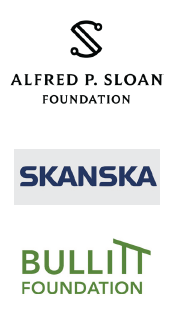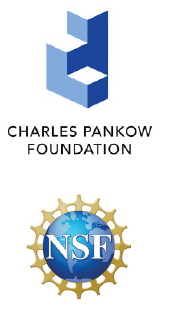The Life Cycle Lab advances life cycle assessment (LCA) methods to provide actionable data for decision makers, and evaluates strategies to optimize material decisions at all scales (material, project, region).
The Life Cycle Lab within the College of Built Environments at the University of Washington is an interdisciplinary research group focused on conducting the foundational research needed to develop methods to accurately assess and radically reduce the embodied carbon in materials, buildings and infrastructure while optimizing the broader impacts of materials on human, social and ecological health across the full life cycle.
Our group is led by Professor Kate Simonen, AIA, SE and faculty member of the Department of Architecture (CV).
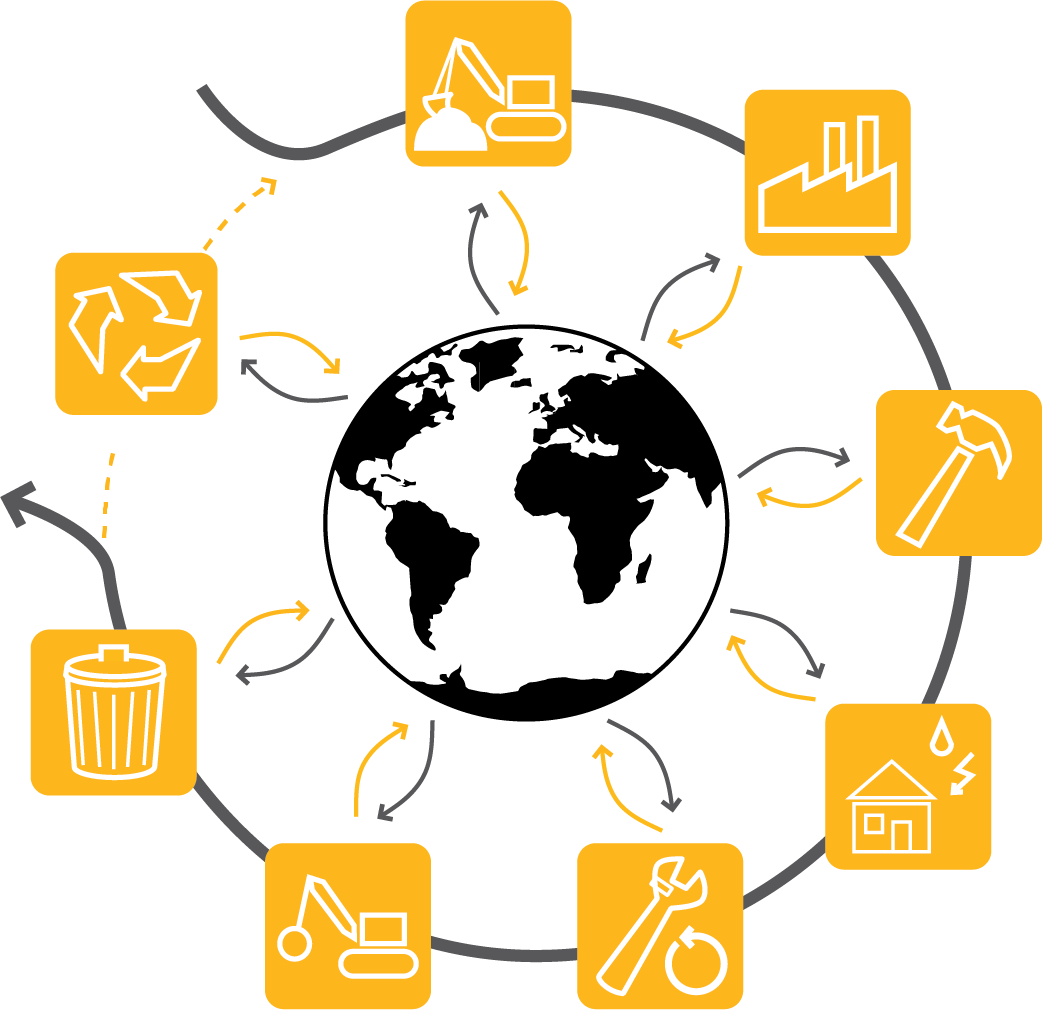
Informing Practice & Policy: Research
Enabling construction practices to quicken
market transformation
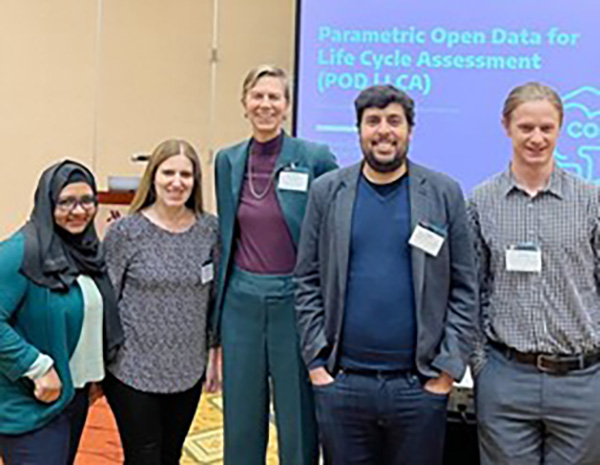
Kate (center) and her team at a POD/LCA meeting in Denver
Prof. Simonen has garnered more than $5 million to support her research, policy formation and outreach influencing diverse academic, professional and governmental audiences. Prof. Simonen advises policy makers, businesses and nonprofits in the United States, Canada and Europe on embodied carbon policy and practices. Her influence has impacted EC policies at a range of scales from the adoption of LCA/embodied carbon into CALGreen, the nation’s first mandatory green building standards code, to rapid growth of “Buy Clean” procurement policy at the state level. Her impact extends to updating standards, such as the Concrete Product Category Rule, leading to more than 80,000 new concrete mixes with Environmental Product Declarations (EPDs) in North America. Currently underway is a multi-year project to develop the second version of the Whole Building Life Cycle Assessment Benchmarking Study that will help set EC standards for buildings.
Enabling Change: Tools & Resources
Empowering design and construction
teams to meet climate goals
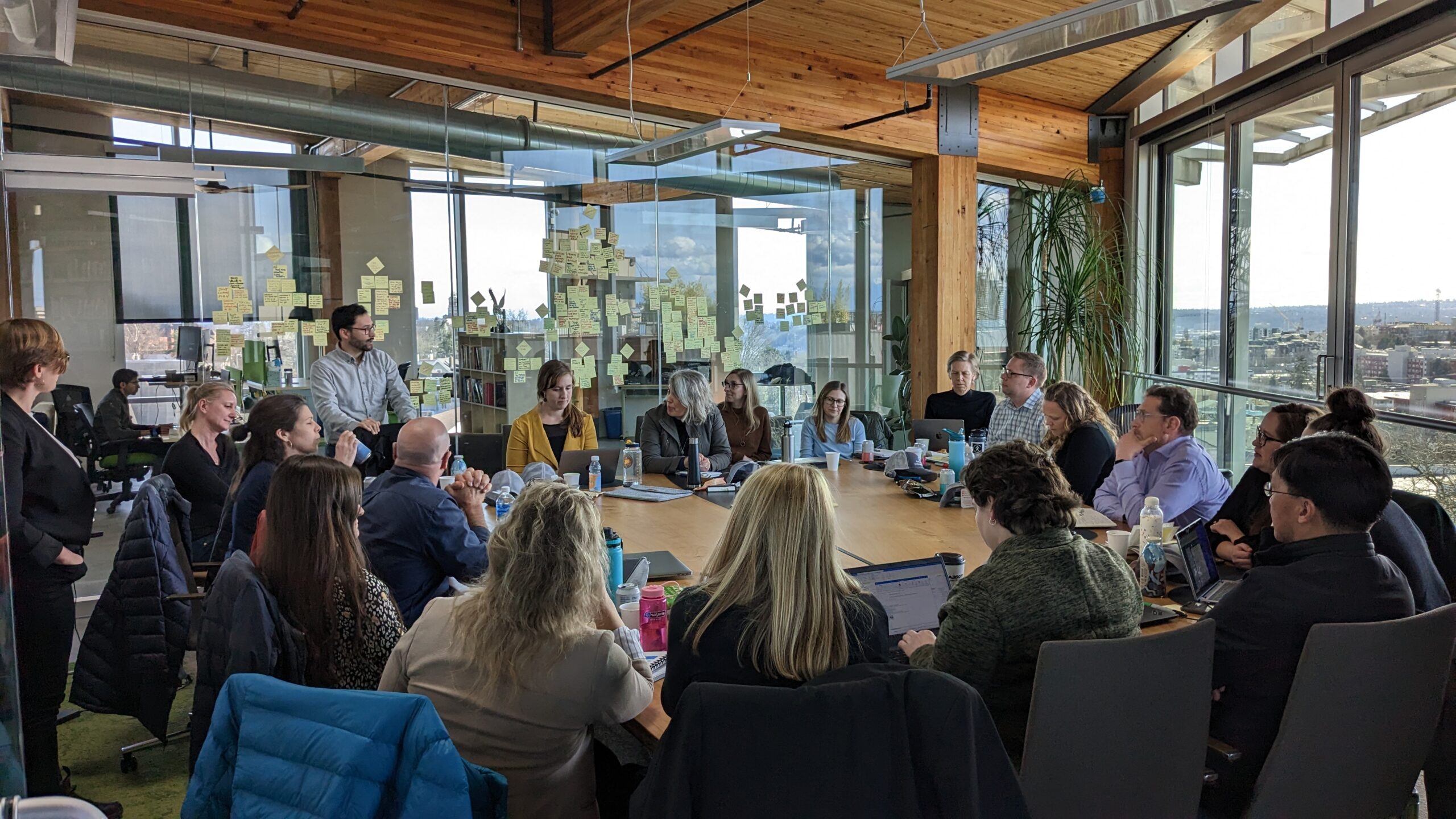
Meeting of Embodied Carbon Harmonization & Optimization (ECHO) Project
The Life Cycle Lab is the juggernaut behind multi-party initiatives creating data-driven resources such as the Embodied Carbon in Construction Calculator (the EC3 tool) and AIA educational materials. EC3 is the first free-to-use interactive digital tool designed to navigate the complicated process of selecting low-EC building materials; the database has 33,000 users, averaging 22,500 searches of its database monthly. In 2017, Prof. Simonen with members of the Lab staff developed the embodied carbon components of the AIA Material Matters Curriculum for online and in-person training, followed by the AIA-CLF Carbon Tool Kit for Architects, a three-part free series, in 2021. Additional extensive online resources developed with her staff and collaborators empower action to enable gigaton-scale carbon reduction.
Inspiring Action: Collaboration
Building a proactive, leading-edge network
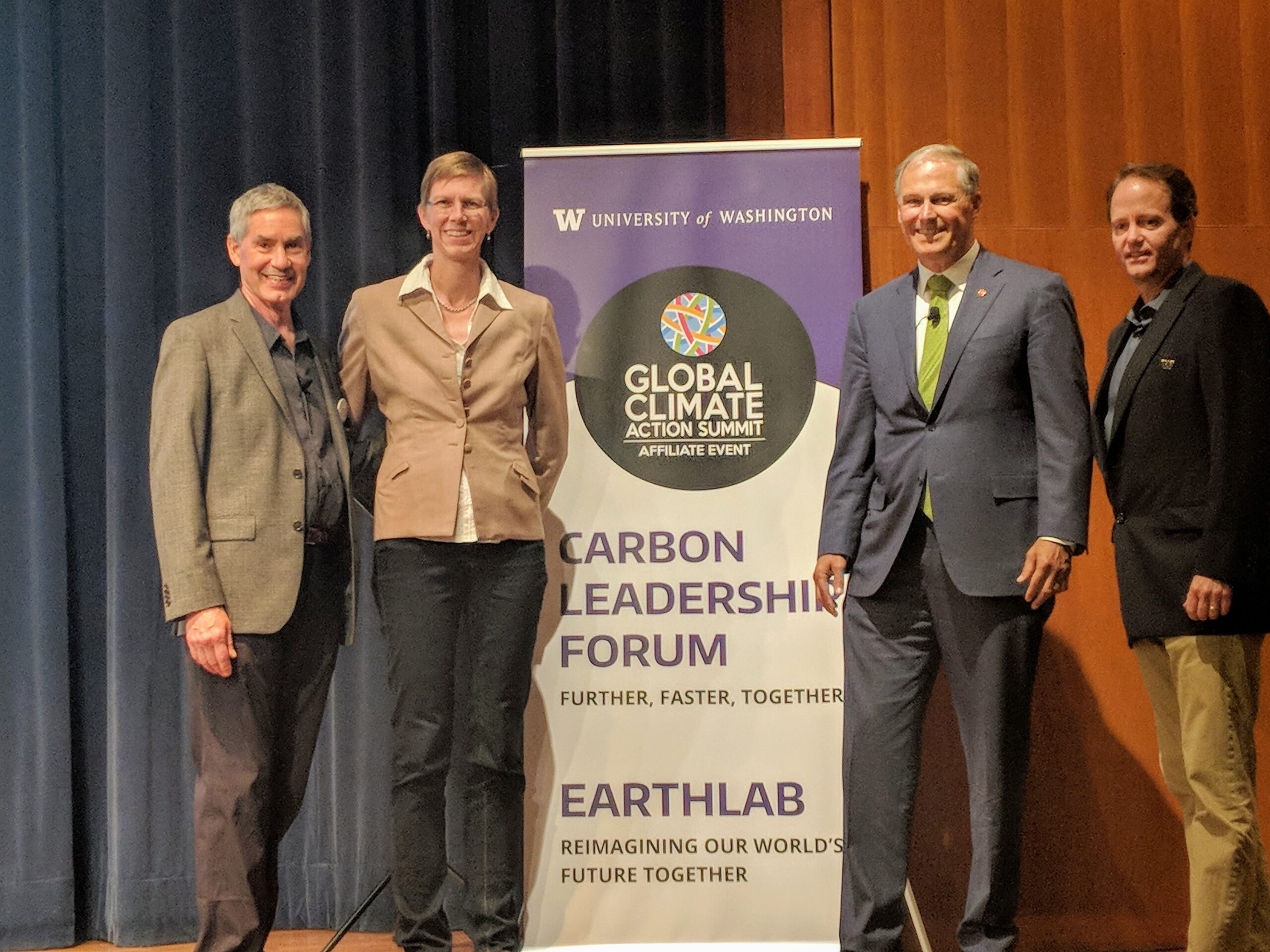
Carbon Smart Building Day, 2018: Andrew Himes, Prof. Kate Simonen, WA Governor Jay Inslee, Earth Lab’s Ben Packard
On a daily basis, Prof. Simonen and the Life Cycle Lab join forces with a broad range of allied research and action groups including the AIA, Architecture 2030, International Living Future Institute and the U.S. Green Building Council. In 2017, Prof. Simonen led creation of an embodied carbon network to scale up the movement and create a united social infrastructure. This has grown into the CLF Online Community, an international communication platform with more than 4,000 individual users exponentially driving change. Active in integrating embodied carbon into the AIA 2030 Commitment, Prof. Simonen expanded that momentum by challenging other disciplines to take collective action toward rapid emission reductions. The Structural Engineers 2050 Commitment has now been adopted, supported by more than 122 firms, and MEP 2040 has over 80 signatory firms driving action. The Lab’s critical leadership spurs transformation of industry, foments novel materials and births greener policies, all working toward in an architect-driven carbon-smart future.
Awards, Honors, and Recognition
2024 Fellow in the American Institute of Architects
Recognizing Prof. Simonen’s accomplishments she was elevated to Fellowship in the American Institute of Architects. Carbon activist Kate has crystallized the embodied carbon movement with cutting-edge research, incubation of new approaches and cross-sector collaboration, equipping architects with the data, policies and social infrastructure to successfully harness carbon-smart material solutions.
2022 Honorary Fellow of the Institute of Structural Engineers (United Kingdom)
Recognizing Prof. Simonen. The Institution of Structural Engineers has 27,000 members operating in over 100 countries. The Institution upholds standards, shares knowledge, promotes structural engineering and provides a voice for the profession.
2021 AIA Seattle, Community Service Award
Recognizing Prof. Simonen for achievement of significant community service and for exemplifying the application of architectural skills, values and dedication to the advancement of community goals
2021 American Society of Civil Engineers, Charles Pankow Award for Innovation
Recognizing Prof. Simonen’s collaborative work on the EC3 Tool to advance the design and construction industry by introducing innovation into practice
2020 Association of Collegiate Schools of Architecture (ASCA) Architectural Education Awards, TAD Research Contribution Award
Recognizing “Benchmarking the Embodied Carbon of Buildings” as the best article from the Technology | Architecture + Design journal
2020 University of Washington Husky Green Award
Awarding Prof. Simonen’s research linking environmental life cycle assessments to construction methods
2020 Engineering News-Record 2019 Top 25 Newsmaker Award
Lauding Prof. Simonen’s climate activism and her steady hand guiding the Carbon Leadership Forum and creating the transformative EC3 Tool for the building industry
2019 University of Washington Distinguished Teaching Award nominee
Recognizing Prof. Simonen.
2006 NCARB (National Council of Architectural Registration Boards) Prize for Integration of Practice and the Academy
$7,000 awarded to the California College of the Arts, Dept. of Architecture. Prof. Simonen was faculty for studios highlighted in the submission.
2004 NCARB Prize for Integration of Practice and the Academy
$7,000 awarded to the California College of the Arts, Dept. of Architecture. Prof. Simonen was principal faculty responsible for curriculum development.

Past Grantmakers
Advanced Research Projects Agency – Energy (ARPA-E)
Alfred P. Sloan Foundation
American Institute of Architects: National and Seattle Chapter
Applied Technology Council/FEMA
Bullitt Foundation
Charles Pankow Foundation
ClimateWorks Foundation
College of Built Environments, University of Washington Built Environments Lab
Department of Energy
European Climate Foundation
Naito Foundation,
National Science Foundation
Oregon Dept. of Environmental Quality
Skanska
State of Washington
University of Washington
USDA
Washington State Department of Transportation
